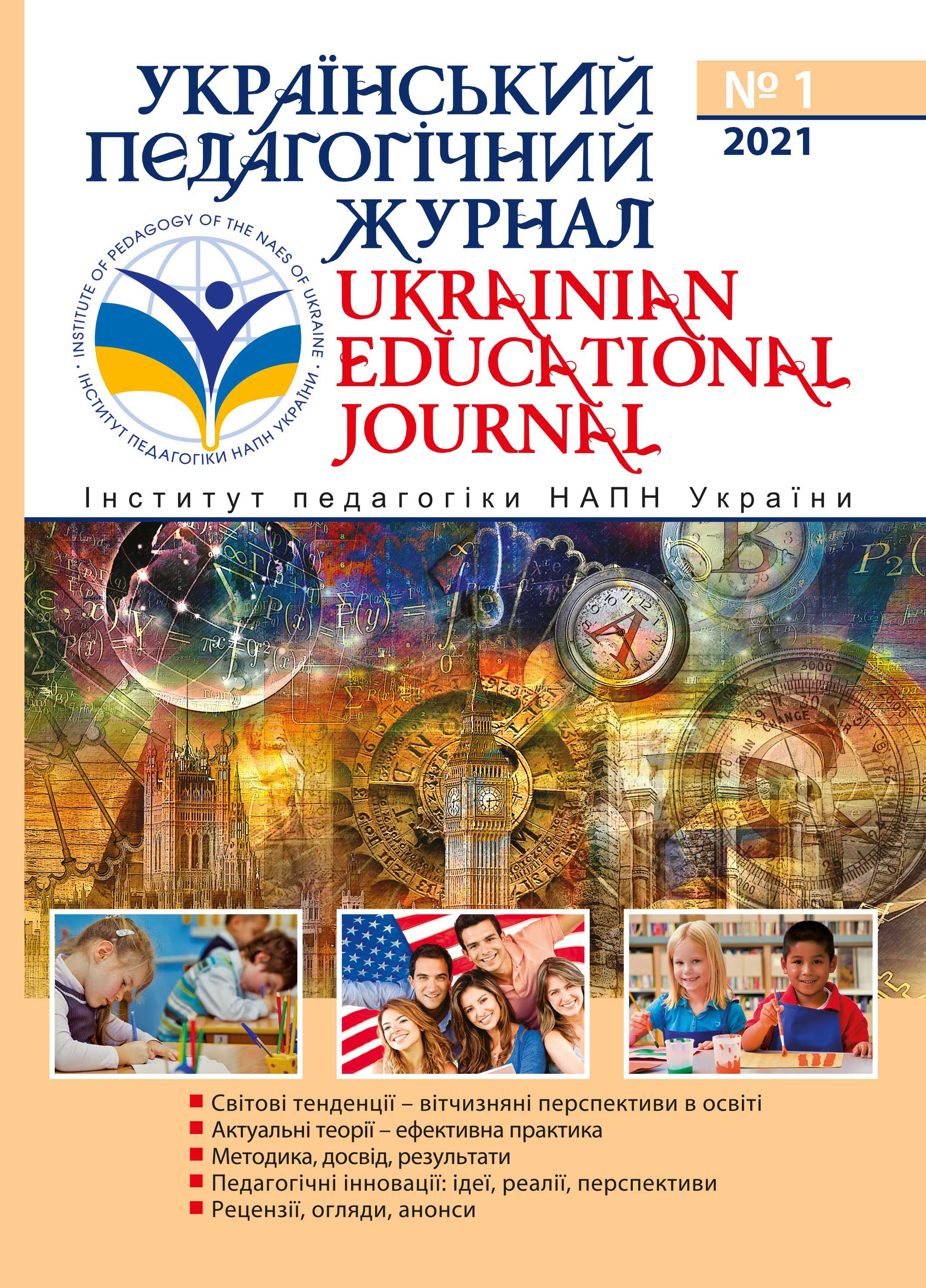Abstract
The problem of pedagogical modelling has been in the focus of attention of many scientists for hundreds of years. Teaching processes modeling allows not only to study their effectiveness, but also to program it. Currently, the role of pedagogical modelling is getting more essential concerning the need to master more information within the same educational time-limit and master it not only for the reproductive use of knowledge, but also for productive creative activity. To achieve the effective teaching processes, the obligatory conditions for their modelling, which we call "regularities", should be implemented. Taking into account that teaching is a dialectical process of cognition of the surrounding reality, the regularities of its modelling come from the laws of dialectics and synergetics. These regularities, as we have established, are the following. 1. The model of the teaching process should include not only all its constituents, but also allow such form of their relationship that will provide it with positive, effective dynamics. 2. The model of the teaching process should provide students with the possibility to advance from ignorance to knowledge, from inability to skills by means of constant resolving the contradictions between the needs for mastering new educational or professional information and opportunities for full implementation of the previous one. 3. The model of the teaching process in its content part should include only the material of current interest based on the denial of the obsolete items, the integration of the remaining pieces of the material with the new information and the compression of the newly-formed parts of the material. In its procedural part, it should include both the effective previous and modern (computer) methods and teaching aids that are able to ensure mastering of the compressed content. 4. The model of the teaching process will provide a systemic increase in the students’ competence potential under the condition of a gradual increase in the complexity of both the semantic content and the components of the content of its mastering: from receptive knowledge to receptive skills, and from receptive skills to reproductive, productive and reflective skills. 5. The model of the teaching process will ensure the mastery of the material under study as long as the following conditions are observed, namely: motivation to acquire new knowledge; splitting the entire subject content into elements accessible in volume for their mastering by the majority of students per unit of the educational time; the semantic relationship of elements and the obligatory repetition of all the previous ones when studying the next one within the framework of one topic; domination of involuntary repetition over voluntary for a long lasting and practical memorization of the material under study. 6. The model of the teaching process will be valid if its practical implementation is the following: a) with 80% mastering of the programmed material by the majority of students in the process of a formative experiment and b) with 70% mastering of the programmed material by the majority of students in the process of mass training.

This work is licensed under a Creative Commons Attribution-NonCommercial-ShareAlike 4.0 International License.
Copyright (c) 2021 Раїса Мартинова

